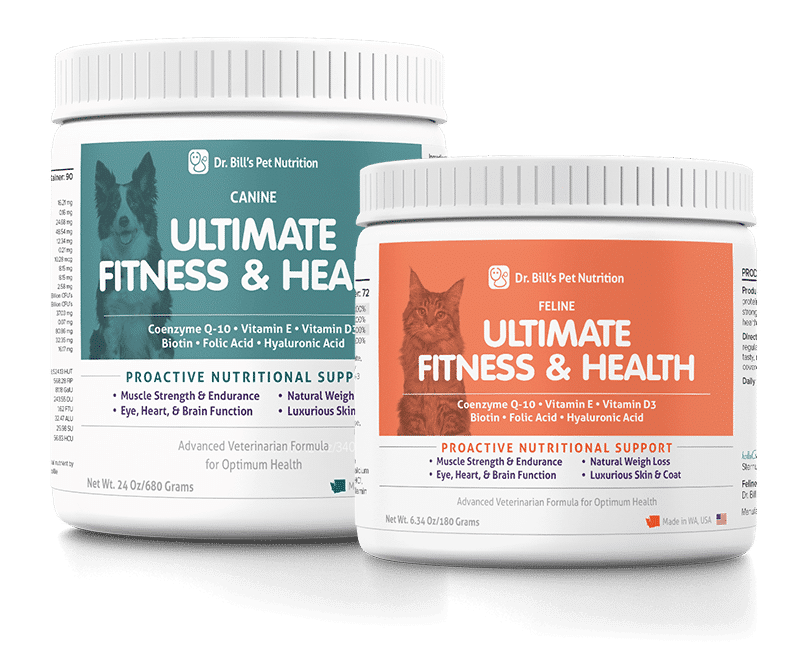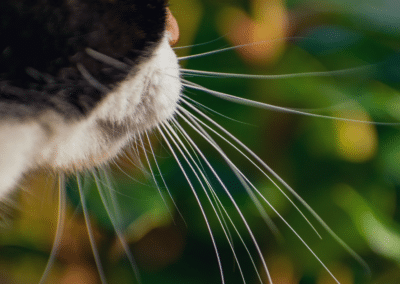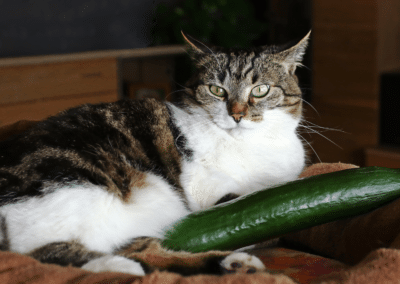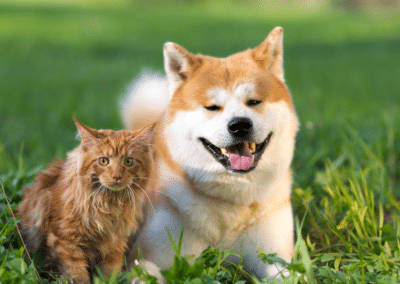By Dr. Bill Barnett, D.V.M.
Pet health is much more than the absence of disease.
The typical medical definition is simply the absence of any clinical disease. For me, pet health should include all of the following characteristics:
- An active, playful pet with noticeable energy
- A lean muscular body
- Healthy skin and a shiny coat
- Mentally sharp, alert, and responsive
- All systems of the body are functioning at peak performance
- A balanced, functional immune system
- Absent of any clinically defined disease
- Free of any age-related degenerative disease
The Role of Nutrition

Supplementation can provide the required nutrients without adding additional calories or over-feeding. Originally formulated to help performance animals reach their maximum potential, Ultimate Fitness & Health contains the balance and strength of scientifically blended nutrients that provide optimum health, increased fitness, natural weight control, and maximum performance for cats and dogs of all ages.
Did you know that very few animals ever die of old age? Most succumb prematurely to what is usually termed “natural causes.” Why is it that a long and healthy life is rarely achieved within our pet population today? I recently read a veterinary report that stated “in spite of all of the modern advances in veterinary medicine today, we are seeing an increase incidence of disease in our pets.” Our pets are dying prematurely of chronic, degenerative diseases such as cancer, kidney failure, diabetes, and heart disease. In order to achieve optimum health and complete wellmess, everything that affects a pet must be taken into consideration.
Pet Health and the Forces of Life
As I often remind pet owners, there are three primary forces in life that directly affect overall pet health, well-being, and length of life. They are genetics, environment, and nutrition. These can assert their force individually or in concert with each other. Optimum health is achieved when all three are in balance.

Genetics
Many animals are blessed with strong genes that enable them to live healthier and longer lives while others, it seems, are constantly faced with health problems.
1 in 4 of our pure-bred dogs suffers from health problems caused by genetic defects.
The evolutionary tale of how we went from the grey wolf to 400 very diverse breeds of dog sheds light on the genetic problem we face today. It has been well documented that the primary consequence of interbreeding to create man-made purebreds with a unique type and individual traits is that over the years, many behavior and disease-causing genes have been introduced and concentrated in these breeds, creating numerous canine and feline health problems that persist today.
A quick glimpse into where many of our pets come from reveals that many of today’s genetic problems are a result of breeds becoming overly popular and thus being bred excessively without exercising any caution. In addition, there are those who will breed indiscriminately for profit.
Do your homework before purchasing a new dog or cat. Read about the breed you want. Require that the breeder or seller show proof that the parents and grandparents are free of any potential genetic defects.
For more information on specific breeds, check out our Breed Spotlight blogs including the Golden Retriever, English Bulldog, Greyhound, and the Afghan Hound.
Environment
Environmental issues include both physical and emotional. Weather, pollution, pesticides, toxins, noise, parasites, mold, bacteria, and viruses are just a few of the environmental forces our pets must contend with.
Lung cancer is on the rise in pets as a result of second-hand smoke from owners.
All too often, the environment we place our pets into can wreak havoc on their health, so it is important to research the care of breeds to provide them the space and attention they need.
Nutrition
Scientists teach us that food can make us healthy and strong or it can make us very sick and weak. In 450 BC, Herodotus said, “all diseases to which man is subject proceed from food.” This is still a widely held opinion today, yet it is all too often ignored.
Nutrition is not only considered the ‘foundation of life,’ but it is also the easiest of the three forces for most pet owners to control. As such, nutrition is where the majority of our attention should be focused in order to defend our pet’s health to the best of our ability.
Obesity is the number one health concern facing our pet population today. Obesity is a nutritional disorder not seen in wild carnivores. Because our pets eat what we provide, this is a man-made disease stemming from an inadequate diet.










0 Comments